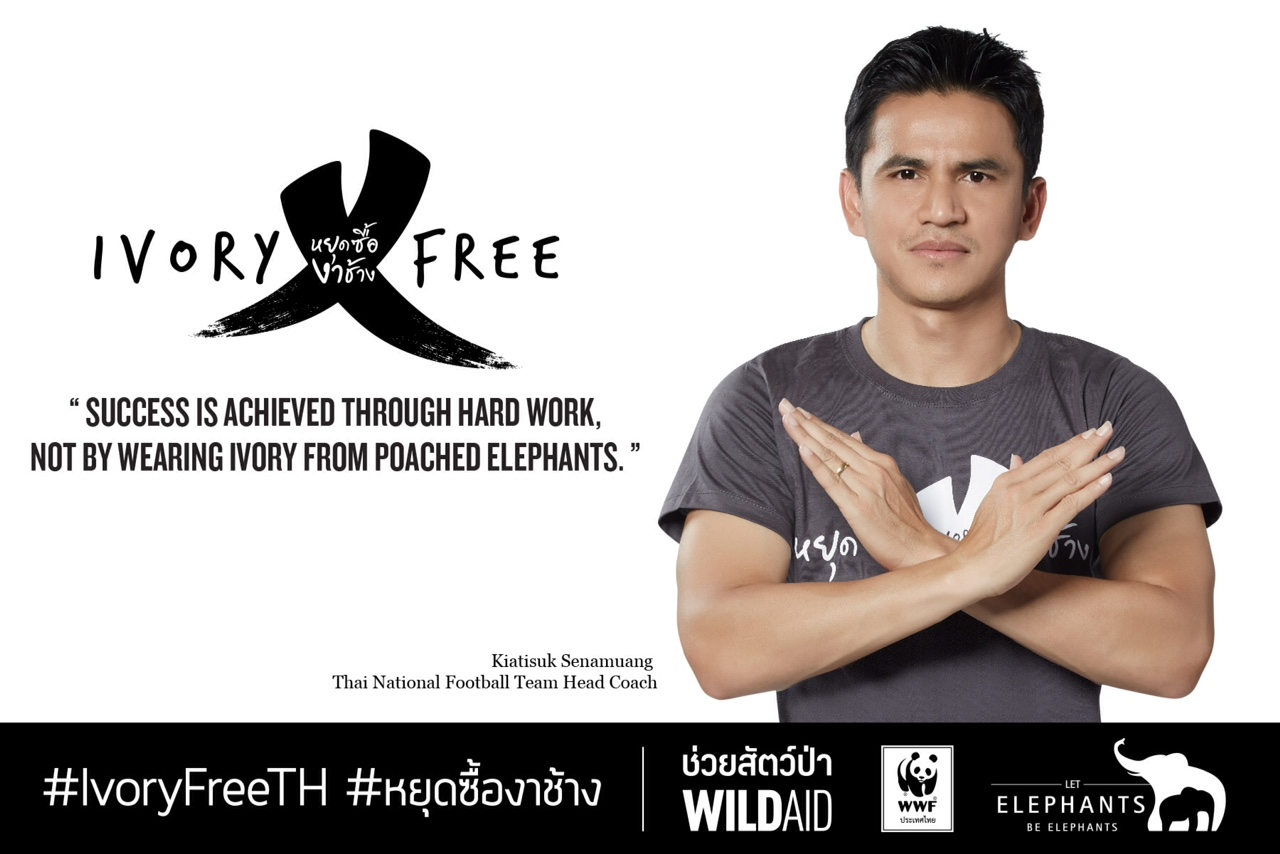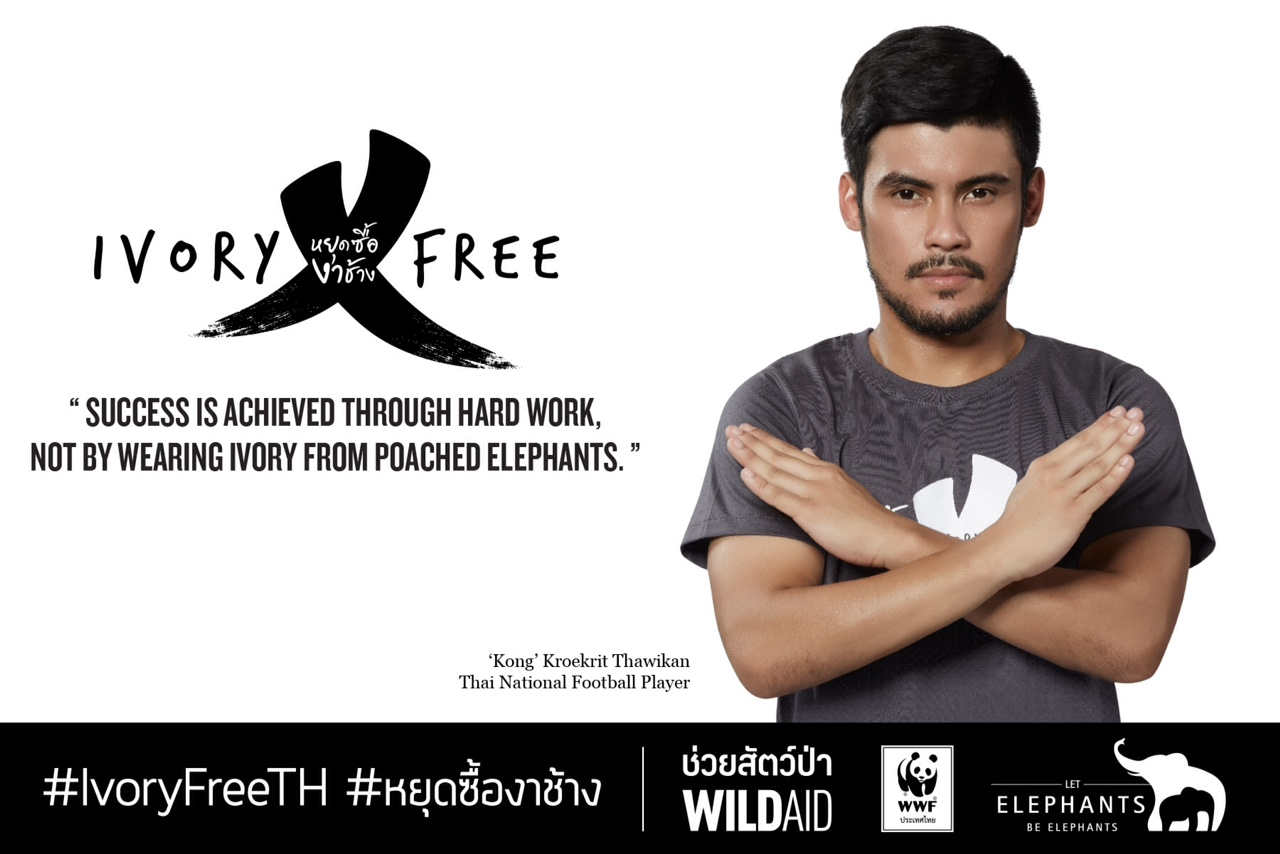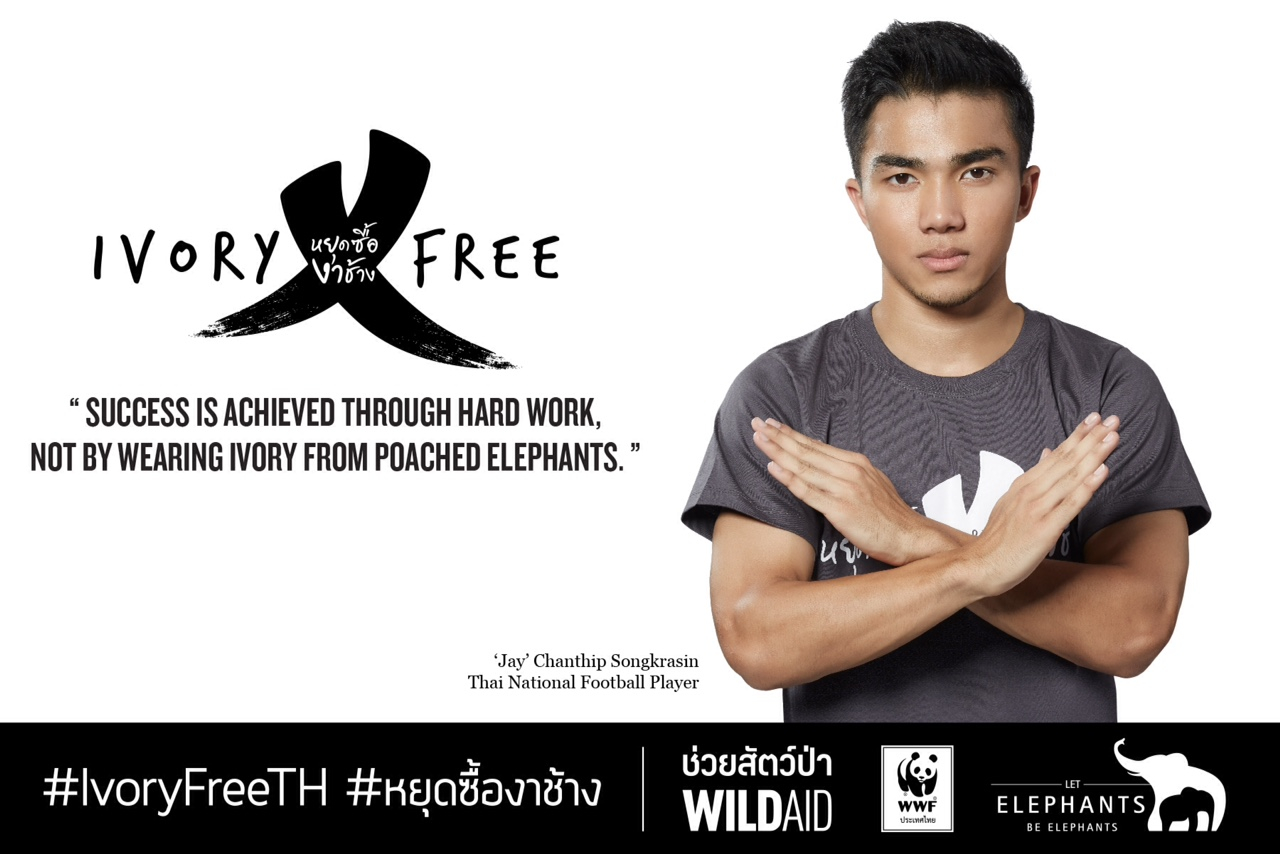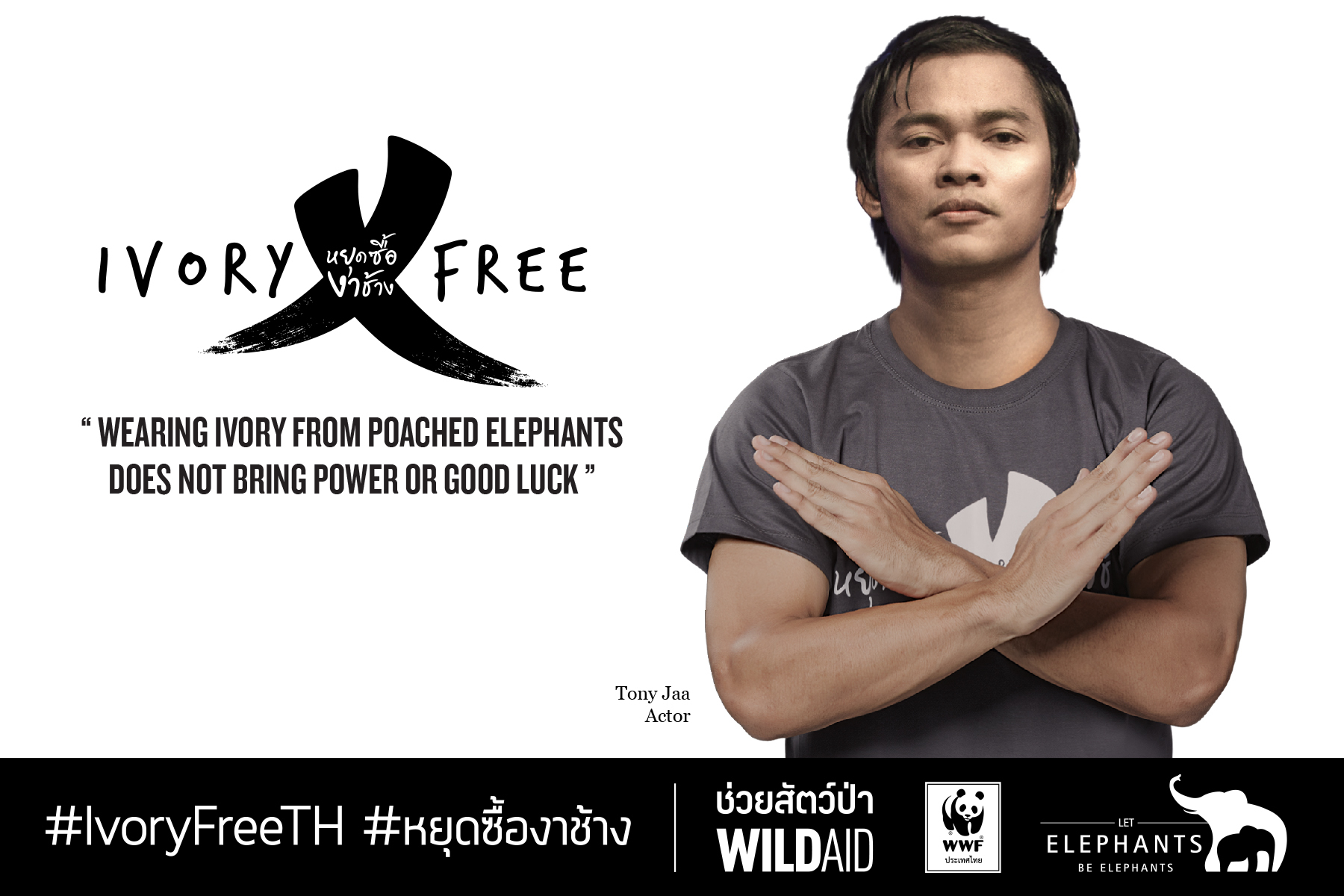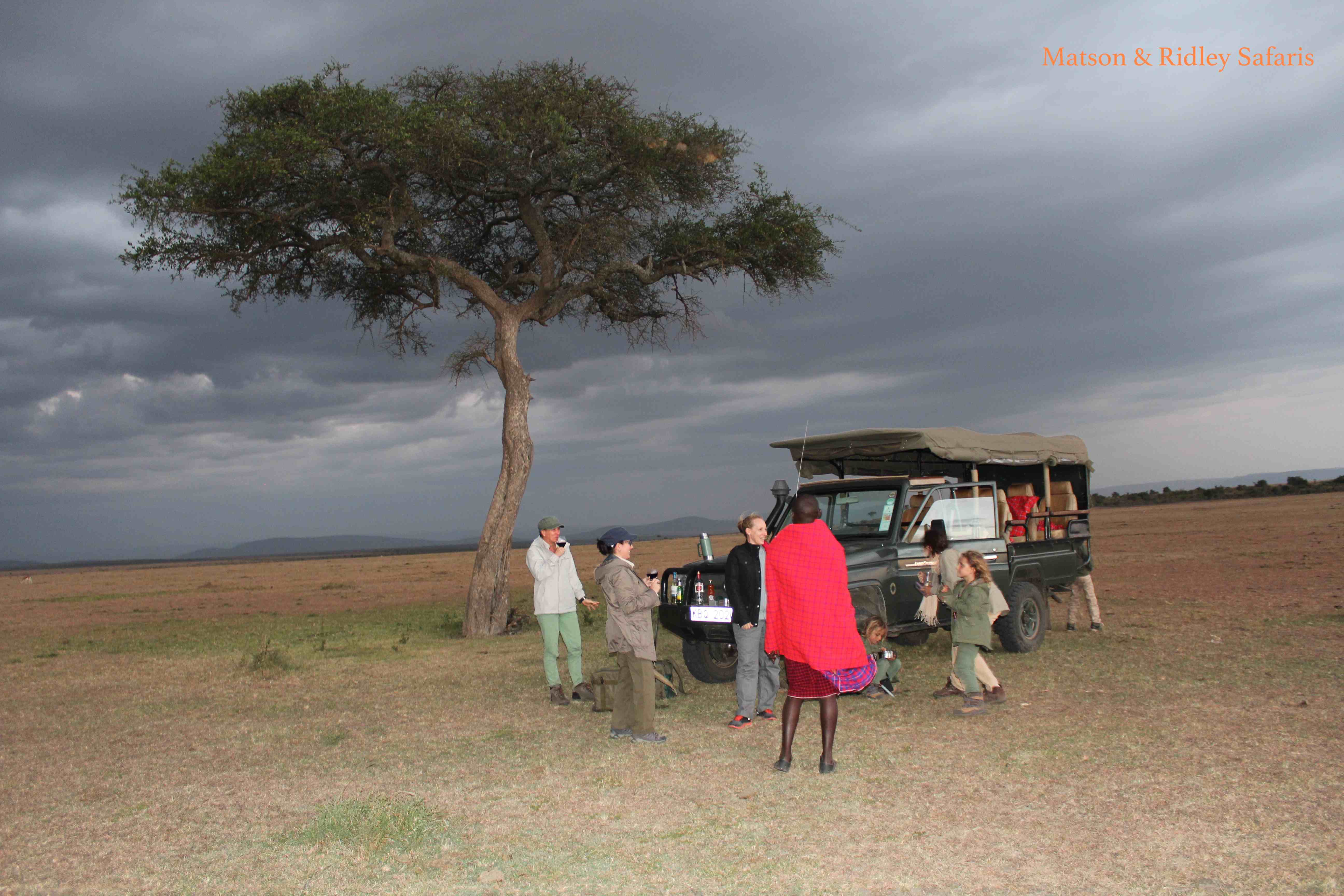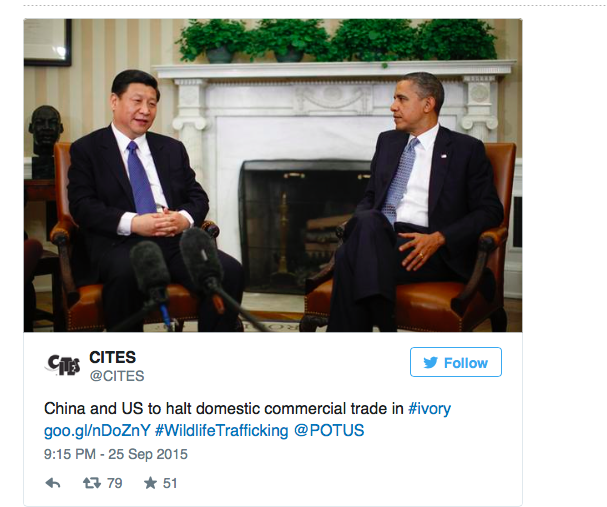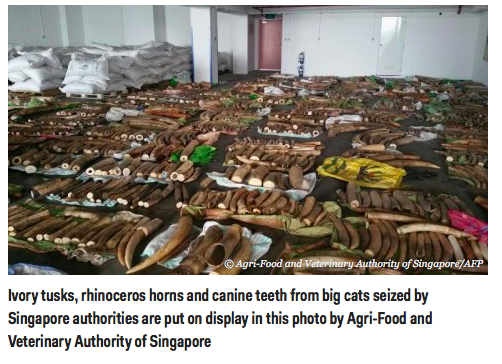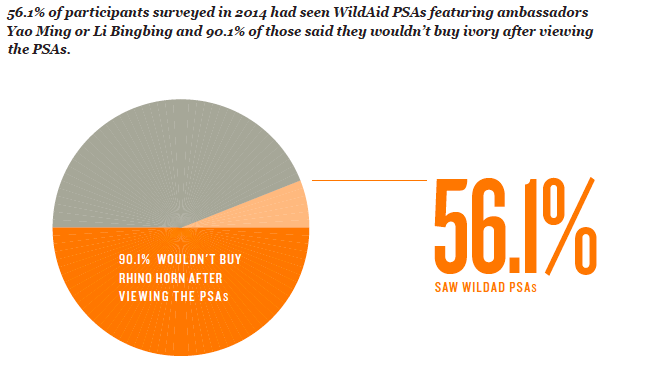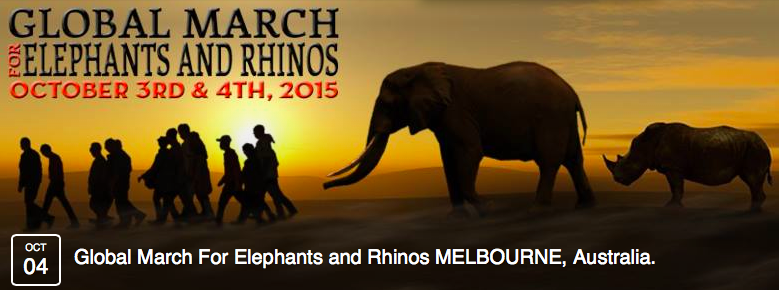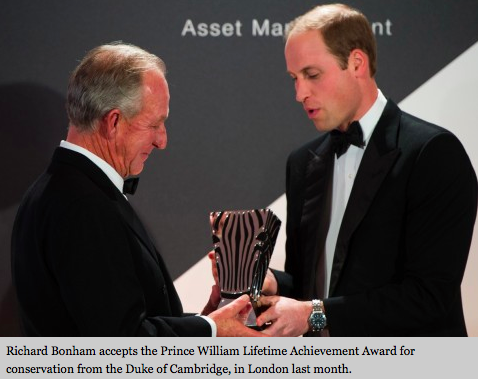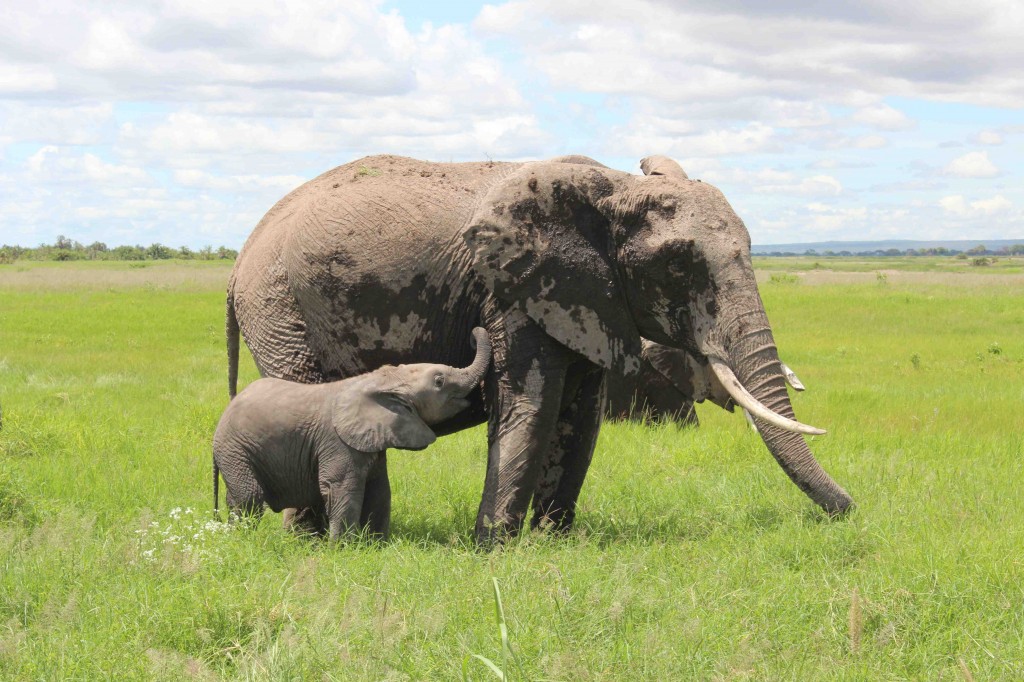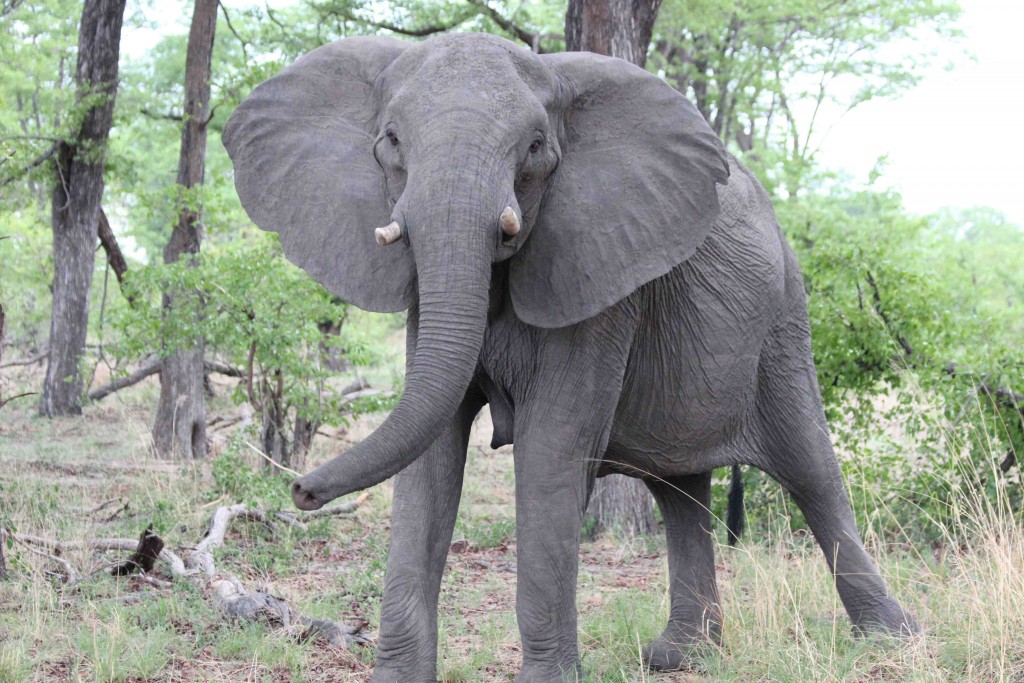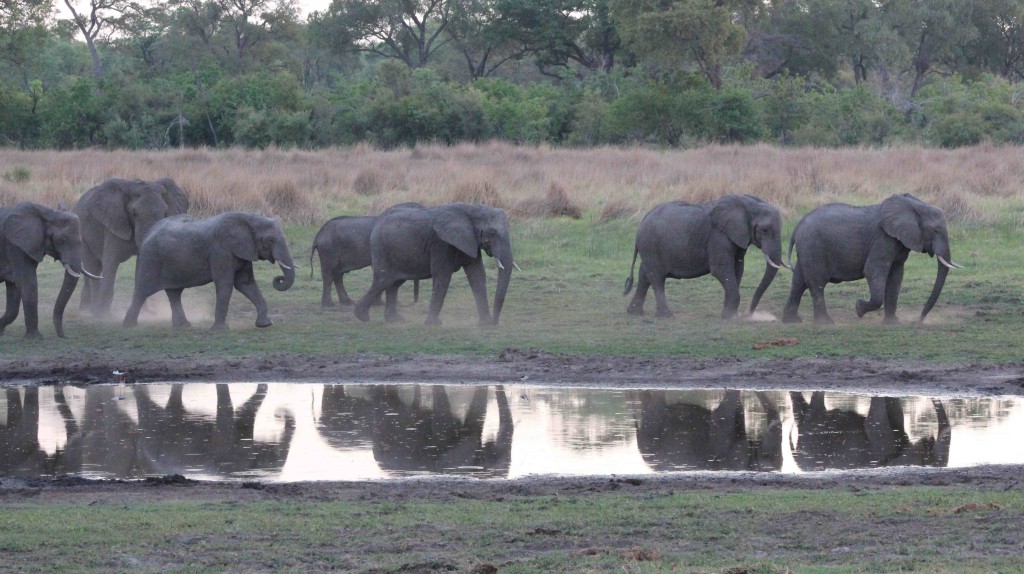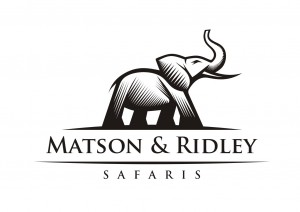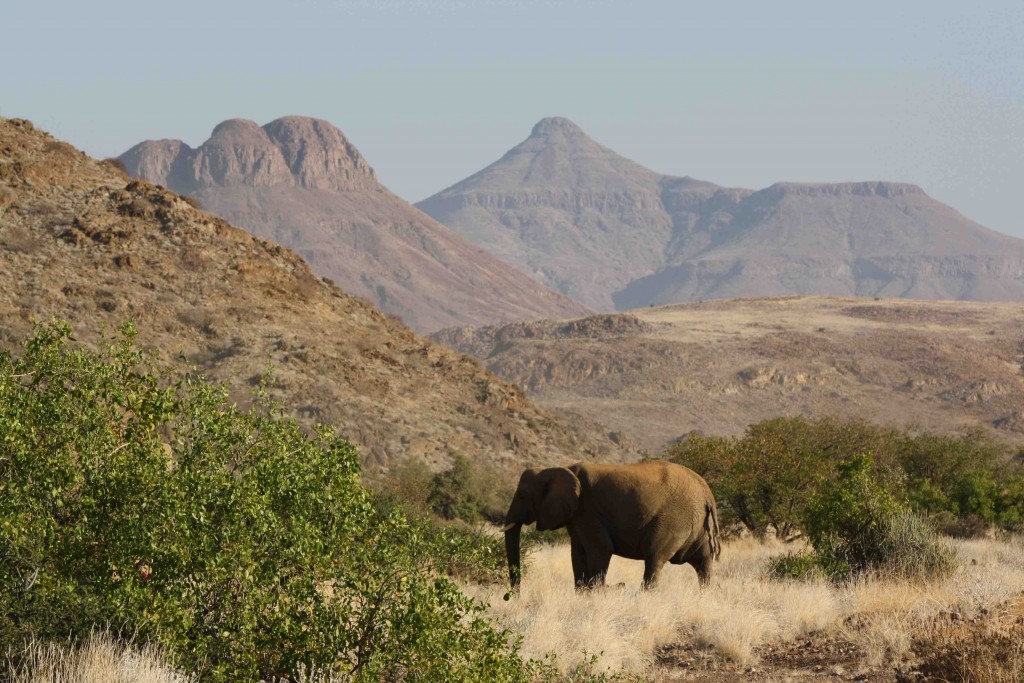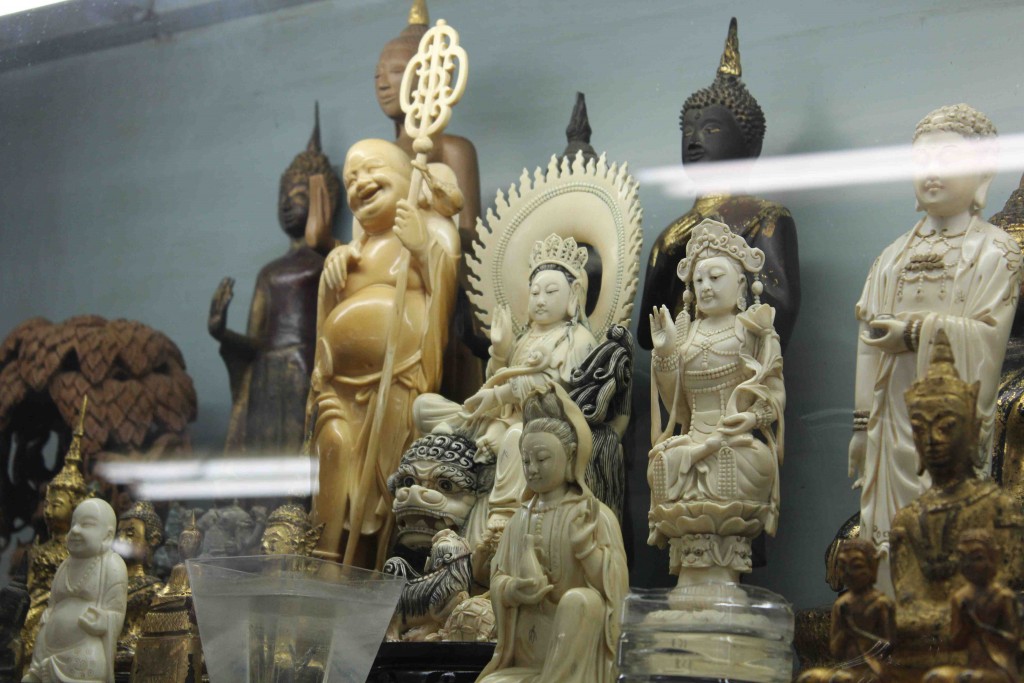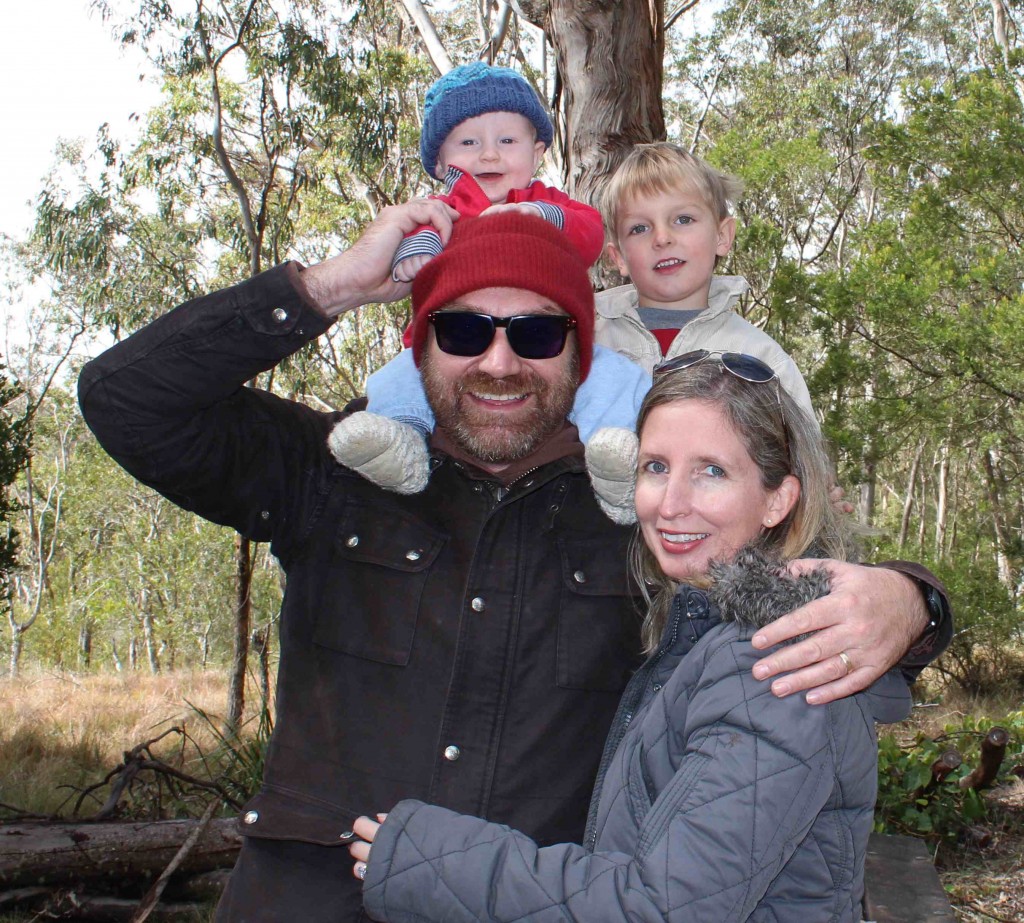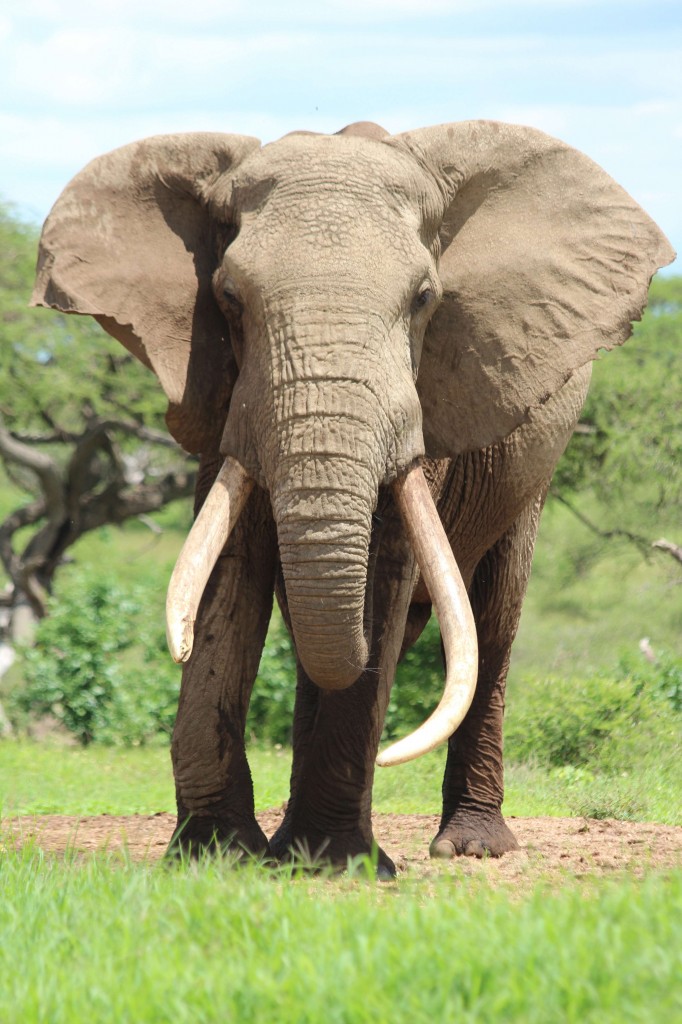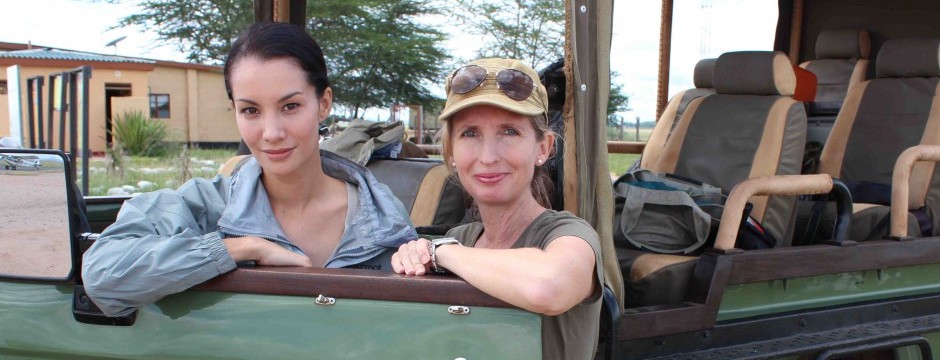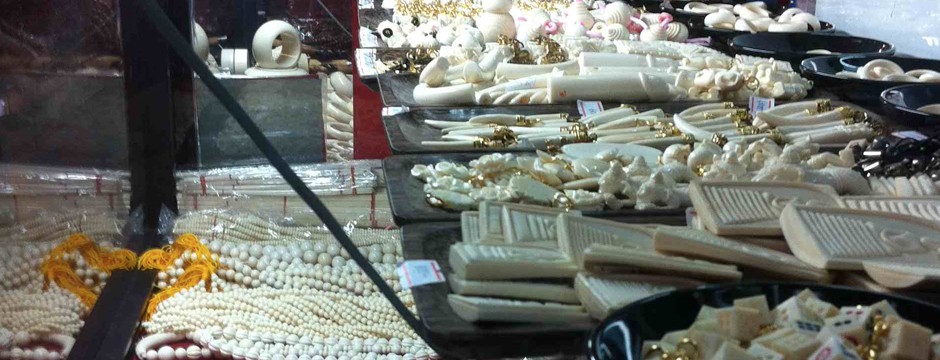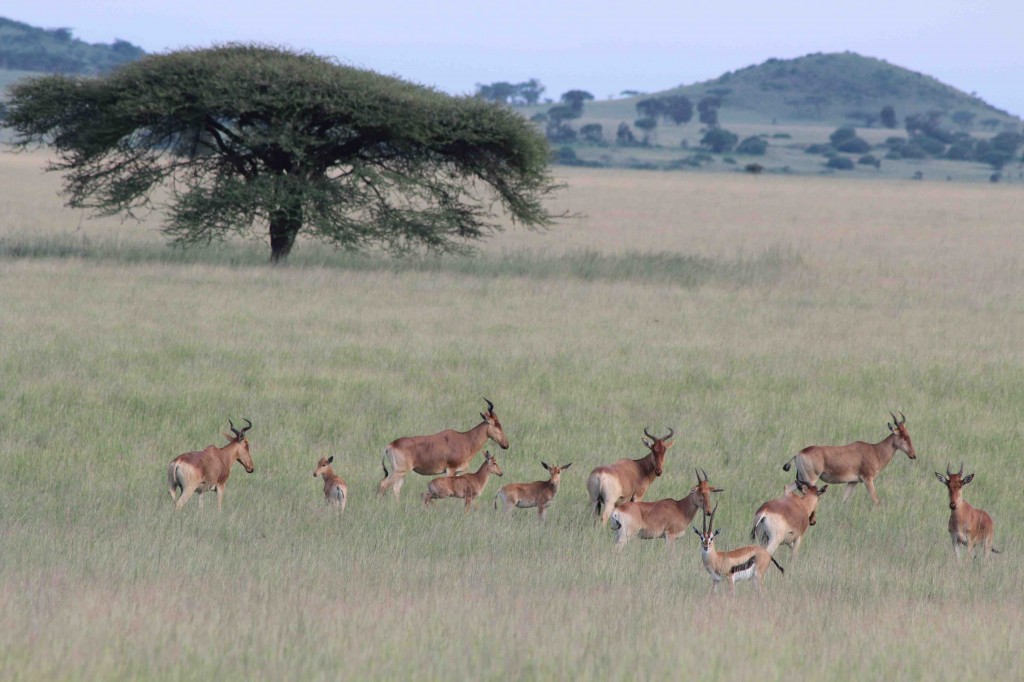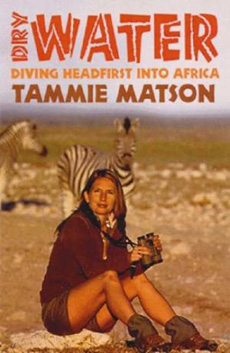Thai Soccer Team & Tony Jaa Go Ivory Free in Thailand
What have elephants got to do with football and martial arts? Well more than you might think!
Thailand has long been a hot spot for the illegal ivory trade, which is why the Let Elephants Be Elephants team targeted this country for the next phase of our campaign. We have seen some stronger measures in Thailand in the last year, including changes to the legislation around ivory and a public ivory stockpile destruction by the government, but there is still much to be done to raise awareness of the issue in Thailand.
Let Elephants Be Elephants is very proud to be a partner in WildAid‘s new campaign to stop ivory trade in Thailand – Be Ivory Free. The Thai soccer team, the ‘war elephants’, along with Thai Hollywood martial arts star Tony Jaa, are the ambassadors for this campaign locally, encouraging people all across the country to say no to ivory. The core message is that success is achieved through hard work, not by wearing ivory from poached elephants. Take a look at the advertisements going out this week below.
You can do your part to spread the word by going to Let Elephants Be Elephants’ Facebook site and sharing the advertisements far and wide across your social networks. If you have connections in Thailand, please send these messages directly to them. And of course, as always, never buy ivory when you are visiting Thailand or any other country. Let’s keep up the momentum and make sure everyone knows that it’s not cool to wear ivory!
LEBE teaming up with WildAid and the Thai soccer team for elephants
It’s been a while coming, but much goes on behind the scenes when it comes to developing awareness programs for species like elephants and rhinos in Asia. Those of you who know me personally know that the awareness raising never stops when it comes to elephants and the ivory trade. Last week, my conservation safari group of Singaporeans, British and Aussies talked at length about conservation and what still needs to be done while deep in the desert dunes of the Skeleton Coast, inspired by the arid-adapted wildlife of Namibia and those magnificent desert-dwelling elephants. Next week I’ll be in Brisbane talking to about 200 Queensland business women at the Australian Women in Leadership symposium about what we can learn from elephants about leadership (and of course, how we can help the elephants too). Even though we’ve made good headway lately, we can’t afford to lose momentum and we need you to keep spreading the word too.
I’ve spent much time thinking about and talking to others in the know about how to have the most meaningful impact for this cause in the last year. Sometimes it’s more impactful to team up with other organisations that are getting results than to go it alone. I’m very excited to say that the Let Elephants Be Elephants campaign (LEBE) is now teaming up with global wildlife trade organisation WildAid and the Thai soccer team, known as the ‘War Elephants’, to raise awareness of the illegal ivory trade in Thailand.
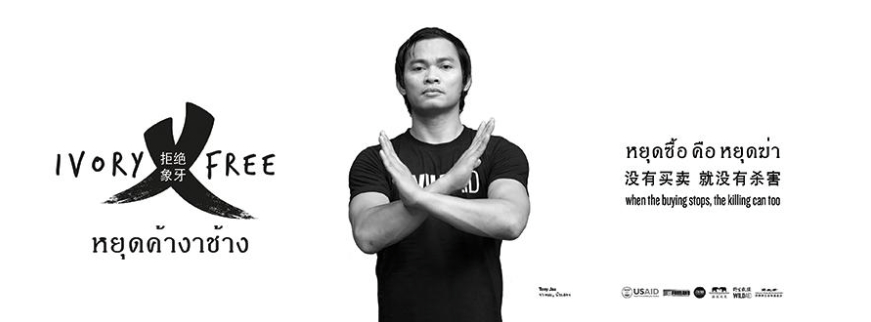
Wild Aid ambassador and martial arts TV star Tony Jaa is making a stand to stop the illegal ivory trade as part of the broader campaign that LEBE is supporting
If you’ve signed the pledge to say no to ivory at the LEBE website, you will have received our latest newsletter today announcing this new partnership. Just in case you missed it, here it is below as well. The ads will be released in the coming months and spread across Thailand, so please help us spread the word by sharing our posts on the campaign in your social media networks.
|
|||||||||
|
|||||||||
|
Wishing you a happy holiday!
It’s that time of year again, and it seems to have crept up so quickly (or maybe I’m just getting old!). Now at the end of our second year in business at Matson & Ridley Safaris, Andy and I wanted to thank you for your support and to wish you a wonderful Christmas and new year. I’ve put together this short video (scroll down to see it), which I hope you’ll enjoy, sharing a few special memories of my adventures with you in the last couple of years in Botswana, Kenya and Namibia. Thanks to all who shared their photos for this, but in particular a big thanks to all the people who made these journeys so wonderful in Africa’s most incredible wild destinations!
For me, it’s a real joy to be able to reflect back and know that our fledgling safari business is helping support so many worthwhile on-ground conservation initiatives, from the Save The Rhino anti poaching efforts in Namibia, to the Giraffe Conservation Foundation, David Sheldrick Wildlife Trust and the Mara Naibosho Lion Project. Those who come on my safaris often get to meet some of the dedicated people behind these operations.
And of course, just by supporting Matson & Ridley Safaris, you’ve helped me continue to keep spreading the word in the Let Elephants Be Elephants campaign, around Singapore, Hong Kong, the Philippines, Australia and even in my new base in the Netherlands. The LEBE campaign has raised approximately SGD$40,000 (almost US$30k) for awareness raising on ivory trade in Asia since its inception, and Nadya and I have spoken at dozens of schools, events, conferences and government departments across the region. A new study by Save The Elephants just revealed that growing public awareness through campaigns like the one by WildAid in China have played an important role in the halving of the price of ivory in the past year, a truly outstanding result that will help reduce elephant poaching. Our LEBE campaign continues in Southeast Asia in 2016 – more news to come on that soon.
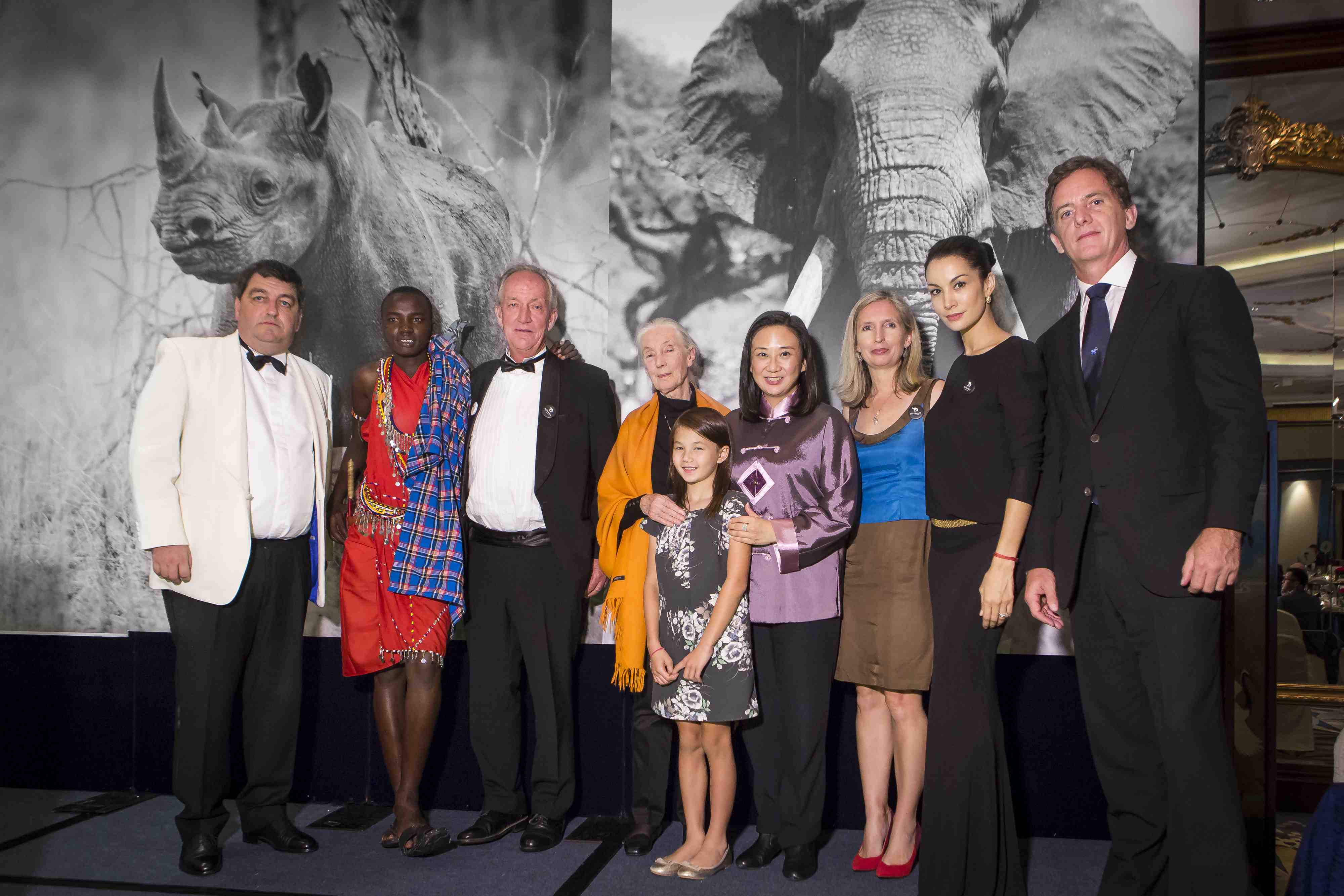
The LEBE team at one of our awareness and fund raising events in Hong Kong, with the team from the Hong Kong Elephant Society, Jane Goodall and Richard Bonham of the Big Life Foundation (photo: Hong Kong Elephant Society)
But I think our biggest contribution through Matson & Ridley Safaris is the benefits your safari bookings provide in terms of local employment in Africa. Wilderness Safaris recently released a breakdown of how your safari dollars are spent, and most enlightening for me was that about two-thirds goes to local employment. This is so important! In Africa, conservation of wildlife is directly related to the economic benefits people get from wildlife, and so this really is a win-win scenario for both people and wildlife. In rural areas where these camps are, there are few other economic opportunities for people, so ecotourism done right can be a real lifeline. Asilia Africa, who we work with to plan your East African safaris, focus on education and conservation, as well as community partnerships to deliver long term sustainability that benefits local people. You can read more about their positive impact and approach to sustainable business development here. When you go on one of our safaris, either independently or with me, don’t forget to ask about all the incredible work these ecotourism companies are doing to ensure that you not only have an amazing experience but that the local people and wildlife directly benefit from the monies you spend.
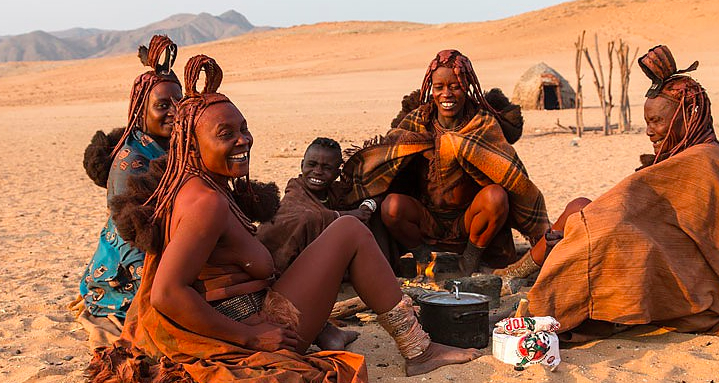
Providing local employment in rural areas in Africa is one of the most important contributions made by ethical safaris (photo: Wilderness Safaris)
Very soon we’ll be launching the new Matson & Ridley Safaris website, but in the meantime you can find us on the Matson & Ridley Safaris Facebook page – like us here to see the latest updates on all our safari offers and opportunities, and you can share your photos there too. We have big dreams for our conservation work – please help us get there by spreading the word about our ethical safaris!
Don’t forget it’s not too late to sign up to join me in northern Zimbabwe in September next year, and I still have one spot left for a single woman sharing in North West Namibia in May (last minute discount available for the latter). There are great deals available for family and group safaris in 2016 all over Africa’s safari regions, especially if you go in the green season. May 2016 be a year of adventure, excitement and inspiration for you all and I hope to see you by the campfire under a starry African sky soon!
Big News in the Elephant World
In the world of elephants, it’s not often that you see conservationists celebrating. President Xi Jinping of China’s announcement on Friday last week that China will join the USA in enacting near total bans on domestic ivory trade is… I think… worth cracking the bubbly over. We don’t entirely know the detail yet, and there is no timeline, other than what was in the White House’s statement, which includes agreement between China and the USA to work together in “joint training, technical exchanges, information sharing and public education”. But this could be a winning combination.
It will of course take some time to see the effects of these Presidents’ commitments, but this is definitely a big step in the right direction and with President Xi Jinping publicly declaring his support, surely this should make it a priority for Chinese policy. This is most significant because China is the world’s largest consumer country for ivory, representing about 70% of the trade, with the USA coming in second. With these two Presidents clearly stating their position that ivory trade will not be tolerated, this sets a precedent that other countries can now follow. Other south east Asian countries like Malaysia, Vietnam, Philippines, Singapore, Hong Kong and Thailand, also play key roles in the illegal trade, either as consumers or transit countries for illegal ivory.
In the last year or so we’ve seen several big players in the ivory trade undertake ivory stockpile crushings (the governments of the Philippines, Hong Kong, the US and China being a few). While this doesn’t really do anything to stop the trade, it does send a strong message that these governments are committed to ending the bloody illegal ivory trade.
Is the world turning a corner when it comes to ivory trade? Is the whirlwind of awareness raising starting to cut through in key consumer and transit countries for ivory? And most importantly, how long will it take for this to make a difference for elephants? Personally, I won’t be really celebrating until we start to see real population trends for elephants in the wild start to improve, and that’s certainly not happening yet. It was only a very short time ago that both Mozambique and Tanzania reported that at least half of their elephant populations have been poached in the last 5 years. Today, I feel cautiously optimistic, but we do need to keep the momentum up.
As I’m about to fly to Singapore and Melbourne for a week of talks on elephants, I’ve been investigating what the Singapore and Australian governments are doing to stop illegal ivory trade. In May this year, Singapore Customs seized their biggest illegal haul in over a decade, including $6 million worth of ivory. But we have yet to see any significant government ivory-related statements from either Singapore or Australia. When I met with Singaporean authorities last year to discuss this issue, I was informed that the Lion City would be crushing its official ivory stockpile shortly, but I haven’t heard anything since. In addition, with the strong influence that both southern hemisphere powerhouses have over other countries in Asia, particularly those that are struggling to get on top of this problem, I think both countries could do more to help this problem by exerting their influence in the region. It’d be great to see support from the governments of Australia and Singapore for countries like the Philippines and Thailand, to help them in the fight against illegal wildlife trade.
We know from the latest CITES report that the level of poaching of elephants is still unsustainable (and has been since 2008) – see the graph below. Anything above the red line is unsustainable (measured against natural population growth rates).
So elephants are far from being out of the woods. However, in addition to last Friday’s announcement from the White House, what also gives me some hope is that Wild Aid is starting to demonstrate some significant results from their Public Service Announcements in China, featuring the likes of David Beckham, Prince William and Chinese basketball player, Yao Ming, for both ivory and rhino horn. Wild Aid’s assessments suggest that awareness of this issue in China is improving (comparing 2012 to 2014), with a 51% increase in people surveyed realising that poaching is a problem and 90% of those who had seen the PSAs saying they would not buy ivory as a result. Read the report here.
Around the world on Sunday 4th October, hundreds of thousands of elephant- and rhino-lovers will congregate at the March For Elephants and Rhinos in 130+ cities. I’ll be marching and speaking at the Melbourne one, which has over 500 people coming. Melbourne residents can sign up to the march on Facebook. Anyone can sign the petition put together by the March organisers to encourage the Australian government to go further – click here to sign.
For those who want to learn more about the illegal ivory trade, please also come to watch the ‘Let Elephants Be Elephants‘ film and hear the latest from me on elephants the day before in Melbourne (this Saturday at 11am). You can RSVP here (where there are also full details of time and venue on Saturday). Singaporeans can join my talk at the Botanical Gardens this Friday at 4pm (full details here). It’s never been so important to keep the momentum up and show the world that we care about elephants and rhinos and will not stand by while they perish on our watch. Let’s all stand together and encourage all governments to follow the lead of China and the USA and commit to ending the illegal ivory trade!
Elephant Round Up
We’ve seen some promising signs from China in the last week in relation to the ivory trade driving elephant poaching in Africa, with the Chinese government conducting their third ivory destruction in the last eighteen months and committing to phase out its legal, domestic ivory industry. No time line has yet been given, but it is encouraging to see the Chinese taking stronger measures and the steps have been lauded by conservation organisations.
So are attitudes changing? A survey by WildAid showed that 95% of Chinese supported a total ban on ivory sales. Another one by WildAid, the African Wildlife Foundation and Save The Elephants showed that three quarters of Hong Kong residents supported a ban on ivory sales there too. Hong Kong is a major transit point for ivory to Chinese market places.
The Let Elephants Be Elephants team participated in an awareness and fund raiser for elephants in Hong Kong in November last year, run by the Hong Kong Elephant Society. Our campaign has always been focused on South East Asia, but we are now starting to form some good working partnerships with organisations in Hong Kong as well.
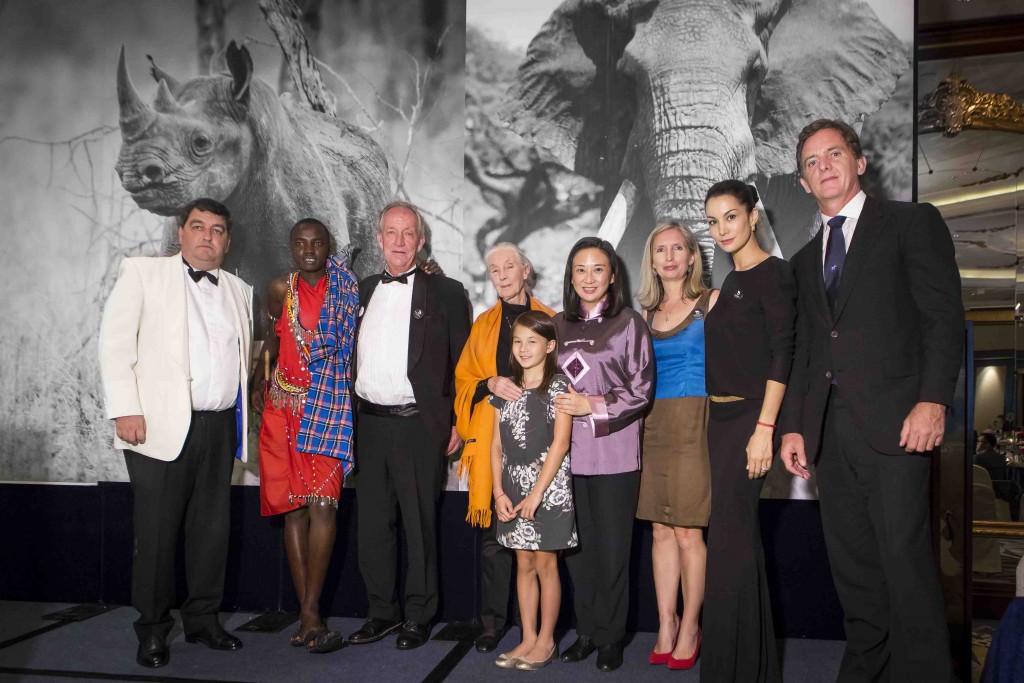
HK Elephant Society co-founder Colin Dawson, Maasai spokesperson John Tabula, Big Life’s Richard Bonham, Jane Goodall, one of the amazing kids who started the movement which led to HK’s first ivory crushing, pro-environment legislator Elizabeth Quat, the LEBE team (me and Nadya Hutagalung), HK Elephant Society co-founder Ted Hodgkinson.
Other organisations that participated on the night were the Big Life Foundation, David Sheldrick Wildlife Foundation and the Jane Goodall Foundation.
There were some great heroes of conservation in the room that night. In one of the most special moments of my career, I had the pleasure of meeting Dr Goodall (photo above), whose book “In The Shadow of Man” I read when I was dreaming of becoming a wildlife researcher back in the early 1990s. Richard Bonham, COO of Big Life, went on from our event in Hong Kong to London to accept Prince William’s Life Time Achievement Award for conservation, so we were in fine company! Also there in support of elephants were the pro-environment Hong Kong politician, Elizabeth Quat and Hong Kong For Elephants‘ campaigner Alex Hofford. The night raised significant funds for three organisations, including a donation to LEBE’s Thailand demand reduction campaign.
Following successful launches in Singapore, Hong Kong, the Philippines and Indonesia, the Let Elephants Be Elephants campaign is planning to focus on Thailand’s ivory market in the next phase of the campaign, and this year so far we’ve been working on bringing in funds and developing the partnerships to roll out the campaign.
We’re heartened by the fact that the Thai government has taken some strong measures towards controlling their ivory markets in the last year, including strengthening laws around ivory trade and clamping down on registration of ivory across the country. We don’t entirely know what this means yet for ivory markets and elephants. LEBE co-founder Nadya Hutagalung found fewer stalls selling ivory in Bangkok during her visit there earlier this year than last year during the filming of the LEBE documentary, which was encouraging, but may also suggest the sellers are uncertain of what the future holds. What we don’t know is whether ivory sales have simply gone underground, and how long existing measures will be enforced. The need for education to reduce demand for ivory remains as strong as ever.
So what’s happening in Africa? Well, the bad news this week has been the WCS report showing the devastating loss of half of Mozambique’s elephants in the last five years. In neighbouring Tanzania, new census figures have shown a decline of 60% of the nation’s elephants in the last five years. This is happening right now! In addition, in western and central Africa, the ivory war is as bloody as ever.
Thankfully there was some good news in amongst the bad this week in the elephant world. This week I was heartened to see a report by WCS from Uganda showing that their elephant population is on the rise, with more than 5000 across the country (still quite low numbers in the big scheme of things however). And don’t forget that in countries like Botswana, the country with the world’s largest elephant population, they are doing just fine. I saw a commentary just today suggesting that South Africa has ‘too many’ elephants, a term I used to hear a lot when I lived in southern Africa in the early 2000s, but not so much these days. Does South Africa have too many elephants or just too little land?
With some countries at threat of losing most or even all of their elephants in the next decade, and others with good, strong populations, we need to look at Africa’s elephant population as just that – Africa’s – rather than one or another country’s elephants, because the species roams across human-defined border as if they don’t exist. The good thing about this is that elephants can expand into new areas when they know they are safe, repopulating former ranges across borders, and that’s where the idea of Africa as a series of interconnected parks and communal conservancies gets interesting. This is already happening in several countries, with great results.
I guess my point this week is that it’s easy to get overwhelmed by all the stories out there about the ivory wars, but bear in mind that both Africa and Asia are big places and the situation is different everywhere. While we might be losing the ivory war in some countries, and we may well see localised extinctions of elephants in some parks and/or countries in the next decade, we’re starting to see improvements in others. So don’t lose hope.
Remember that if you love Africa and you love elephants, make your next safari an ethical one that ‘gives back’ to the local communities who live with elephants and ensure their survival. Drop me a line for more info on joining one of my conservation focused safaris that make a difference.
Elephants, Safaris & More
First of all, just a quick reminder to book your spots on my 2016 safaris to Namibia and Zimbabwe if you haven’t already. I have very limited spots on these safaris, and they need to be booked a year in advance. For all the details of both safaris, please click here. Both are safaris that really make a difference in conservation and community development. In the Zimbabwean conservation safari in July 2016, you get to track rhinos with the pros, hang out with wild dog and hippos conservationists, and experience the amazing Hwange National Park, known for its large elephant concentrations & much more, and Victoria Falls. In the Namibian conservation safari, we’ll be visiting the north west of the country, focusing on the Skeleton Coast, spending time with desert elephants and the traditional Himba people. I can tell you from personal experience, both trips are mind blowing and life changing and the camps are as good as you’ll get in Africa!
Secondly, you may have heard that both China and Thailand are making some progress on clamping down on the illegal ivory trade. We’ve seen Thailand enforce a new law, the Elephant Ivory Act, which requires that all ivory be registered by the authorities by 21 April 2015 or face a penalty of 3 years in prison and/or a large fine. Some media sources are reporting that as a result the number of ivory traders has dropped markedly, as so many of them were unable to verify the origin of their ivory. I haven’t been able to independently verify this myself, and I believe there continues to be a major need for demand reduction in this country. Thailand has also instigated forensic technology to identify the source of ivory (Asian vs African) and will help police the trade.
China recently banned ivory carvings for a year, around the time of Prince William’s visit to Beijing, however this represents only a small amount of the ivory in circulation, and it’s really nowhere near enough to stop the problem. There’s a good article on this if you’re interested in learning more – click here. Prince William has become an outstanding advocate for stopping the demand for ivory and rhino horn and continues to speak out and use his influence for the cause. Check out his speech given recently in China by clicking here. But it’s going to take a lot more than is currently being done to reduce demand in China, the country most heavily driving the illegal ivory trade.
I’ve been working hard with the Let Elephants Be Elephants team this year to focus our awareness-raising efforts on Thailand this year – so watch this space for more information, coming up soon!
Finally, after a few lovely months back on home turf in Queensland, Australia, our family is relocating again, this time to Amsterdam in the Netherlands where my husband Andy is taking up an exciting new job in the environment movement. I’ll continue to update you on all things elephants and African safaris from my new base there.
Ebola’s impact on elephants
Don’t worry, elephants don’t get ebola. Well not as far as I’m aware! But that doesn’t mean they won’t be severely affected by the disease in other ways. Indeed, elephant populations will very likely be impacted indirectly and I think we should be very concerned about what’s happening at the moment.
Next week, conservationists from all around the world will gather in Sydney for the World Parks Congress, including my very own co-founder of Let Elephants Be Elephants, Nadya Hutagalung, who will be speaking at the world leaders dialogues with the head of CITES, Director General of WWF, Ministers of Environment of Australia and South Africa, and several other esteemed influencers. They’ll be discussing the conservation of protected areas around the world. Meanwhile, a crisis is unfolding in Africa and in this case it’s something that the general public has a big role to play in solving.
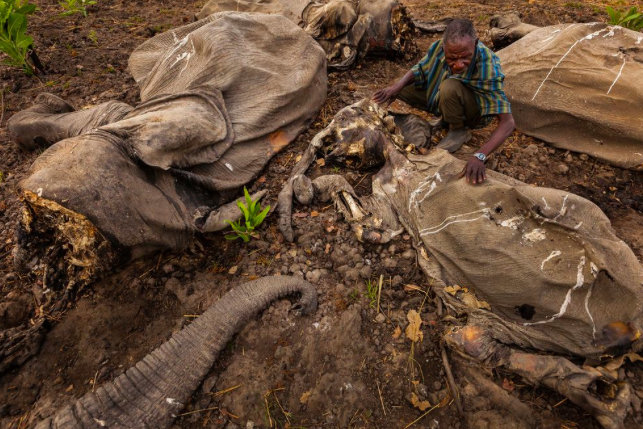
Scenes of devastation like this are becoming increasingly common in Africa, with 2/3 of Central Africa’s elephants having been illegally killed in the last decade (photo credit: National Geographic)
As you all know (because I do talk about it a lot!), African elephant populations are being devastated by the highest levels of poaching seen in decades. The rise in illegal killing is being driven by an increase in demand for ivory from Asia, especially China, and is the result of rising wealth across the region. At current rates of poaching, the African elephant population may have as few as 15 years left.
However a compounding threat is emerging in the form of ebola, due to the negative effect of the disease on tourism across sub-Saharan Africa. Anyone who’s been on safari in Africa can tell you how essential tourism is to the wellbeing of both local communities and wildlife in remote rural areas in Africa because of the far reaching socio-economic benefits it provides. When tourism dollars drop off, local indigenous people turn to alternative income options, like agriculture or even poaching, with devastating impacts on wildlife.
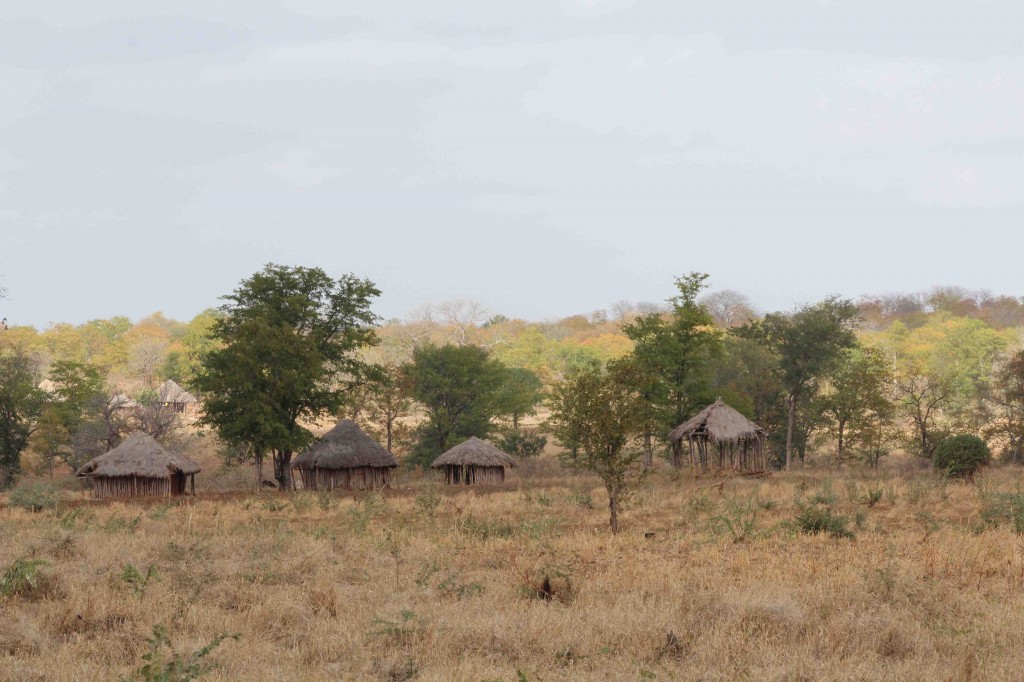
Land that is not providing economic opportunities to local people through tourism will be converted to other land uses, like agriculture, as I’ve seen happen in the Save Valley Conservancy when tourism dropped off in the early 2000s
Ignorance among the general public globally of the location of ebola-affected countries in relation to the rest of Africa is making things worse. So here are the facts. The ebola pandemic is confined to three main countries – Sierra Leone, Guinea and Liberia, all of which are in west Africa, a very long way from the typical safari destinations in places like Botswana, Namibia and Kenya. There are about 8000km between the ebola hotspot of Liberia and the safari areas in Botswana, and over 7000km between Liberia and Nairobi, Kenya . There are no direct flights to either region from Liberia – you have to connect through other countries. Liberia is closer to London, Paris and Rome than it is to these safari destinations in Africa.
Nonetheless, safari operators across sub-Saharan Africa are noticing a significant downturn in future bookings, as well as an increase in cancellations. There have been more cases of ebola in America than there have in sub-Saharan Africa in this outbreak, so you’d be more at risk there than on safari in South Africa. But the perception that safari areas could have ebola, even though they don’t and are miles away, is damaging tourism, which ultimately will make wildlife conservation efforts much harder. I think we’ll see the poaching of elephants and rhinos escalate as a result of the downturn in tourism in Africa if people don’t realise they are not in danger of contracting the disease by going on safari. And I’m not the only one who thinks so; according to this article in The Daily Beast, ebola could deal the death blow to many of Africa’s communal conservancies, which are crucial buffer zones around the continent’s limited national parks.
Since 2006, the number of elephants being poached annually has been rising, driven by an increase in the demand for ivory from Asia. A report just released in August in the Proceedings of the National Academy of Sciences reported that more than 100,000 elephants were illegally killed between 2010 and 2012. There are less than 500,000 elephants left in Africa, perhaps as few as 350,000. The current levels of poaching are not sustainable as they exceed the natural population growth rate of elephant populations.
We have very real reason to be alarmed because tourism is so essential to the continued survival of elephants in the wild.
There are very real solutions that are achievable and you can help.
- Never buy ivory. Tell your friends not to buy ivory when on holiday in places like China and Thailand. Visit http://www.letelephantsbeelephants.org and take the pledge not to buy ivory, then share the videos and facts with your friends on social media.
- Go on an Africa safari that supports local people and allows them to make a living for them and their families through tourism and conservation. If you’ve already booked a safari, don’t cancel it. You’re not at risk in the main safari countries as they do not have ebola and are taking serious measures to ensure it does not reach their shores.
I’ll be heading over to Botswana with a group of Australian and Singaporean travellers in a couple of weeks, feeling comfortable in the knowledge that there hasn’t been a single case of ebola there. It’s been heart breaking to watch the devastation unfolding in west Africa as ebola takes its horrific toll on the human population. Let’s hope that with all the international aid finally going into west Africa that the disease can be brought under control soon.
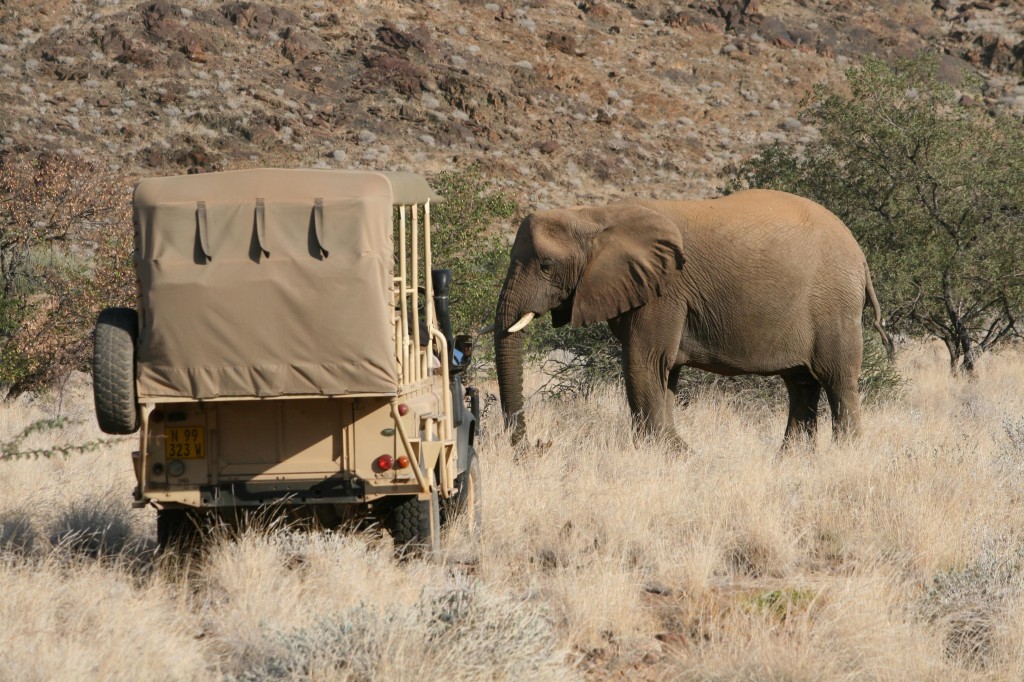
Getting up close to an elephant on safari is one of the most special experiences you’ll have in your life (I took this shot in Namibia)
Let Elephants Be Elephants
Advertising works. We might not like it, but when it’s done well, it does. And when it comes to stopping people buying ivory, it seems that some organisations are seeing signs of success in reducing demand in Asia simply by letting people know that buying ivory is directly linked to the killing of elephants. This is just the sort of hopeful story that I like to share, so read on!
Elephant & rhino rumbles
Some days I feel like I’m leading a double life. One second a conservationist in the wild, the next one a mother wiping noses. One weekend in Bangkok’s crazy markets surrounded by ivory jewellery, the next one headed for Africa where elephants and rhinos are on the receiving end of the poachers… (more…)
The ‘real’ Out of Africa
I’d been travelling to southern Africa for twenty years before I finally set foot in East Africa, taking my first foray into Kenya a few weeks ago. And wow, was it worth the wait!
April is the wet season in Kenya, and so apparently not the ideal time to go, but let me tell you those vast open plains are right out of a Hollywood scene from ‘Out of Africa’ no matter what time of year you go, and the fact that they were covered in an ocean of knee-high grass didn’t mean we missed out wildlife-wise. It was simply magical. (more…)

